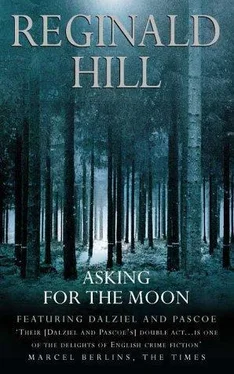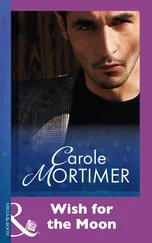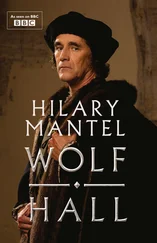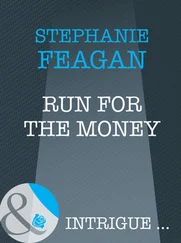Reginald Hill - Asking For The Moon
Здесь есть возможность читать онлайн «Reginald Hill - Asking For The Moon» — ознакомительный отрывок электронной книги совершенно бесплатно, а после прочтения отрывка купить полную версию. В некоторых случаях можно слушать аудио, скачать через торрент в формате fb2 и присутствует краткое содержание. Жанр: Полицейский детектив, на английском языке. Описание произведения, (предисловие) а так же отзывы посетителей доступны на портале библиотеки ЛибКат.
- Название:Asking For The Moon
- Автор:
- Жанр:
- Год:неизвестен
- ISBN:нет данных
- Рейтинг книги:5 / 5. Голосов: 1
-
Избранное:Добавить в избранное
- Отзывы:
-
Ваша оценка:
- 100
- 1
- 2
- 3
- 4
- 5
Asking For The Moon: краткое содержание, описание и аннотация
Предлагаем к чтению аннотацию, описание, краткое содержание или предисловие (зависит от того, что написал сам автор книги «Asking For The Moon»). Если вы не нашли необходимую информацию о книге — напишите в комментариях, мы постараемся отыскать её.
Asking For The Moon — читать онлайн ознакомительный отрывок
Ниже представлен текст книги, разбитый по страницам. Система сохранения места последней прочитанной страницы, позволяет с удобством читать онлайн бесплатно книгу «Asking For The Moon», без необходимости каждый раз заново искать на чём Вы остановились. Поставьте закладку, и сможете в любой момент перейти на страницу, на которой закончили чтение.
Интервал:
Закладка:
Then Lightfoot stood up, put on a black donkey jacket, set his gun in the crook of his arm and went out into the night.
Arthur Lightfoot was in many people's minds that night.
Geoffrey Rawlinson as he shaved in preparation for the party at Wear End found himself thinking of Lightfoot. Even in his democratic teens when as a matter of faith such things were not allowed to matter, he had always been conscious of a vague distaste for calling on Kate at her brother's cottage. There was something so brutishly spartan about the place, and in that atmosphere Kate herself, so unnoticing of or uncaring for the near squalor, seemed a different person. By his early twenties, Rawlinson was openly wrestling with the choice he had to make. If he married Kate, he was marrying a Lightfoot. The two major elements of his make-up – the draughtsman's love of order and shape and the naturalist's love of energy and colour – clashed and jarred against each other like boulders in a turbulent sea. His sister looked pityingly at him but refused to speak. It had to be his own choice and he was ashamed of himself for having such a superficially Victorian reason for hesitating.
Then Ursula told him one morning the news she had learnt the previous night and he realized to his amazement that his sense of critical choice had been fallacious.
Now he lived in a framework of meticulous order which he felt both as a scaffolding and a cage.
But even now, even when he regretted the past most passionately, the memory of Arthur, spooning stew into his mouth at the kitchen table with the encrusted sauce bottle and the curded milk bottle on guard before him, made Rawlinson twitch with distaste.
But that memory was just a mental feint to keep his mind from contemplating – as now he did, looking into his own reluctant eyes in the shaving mirror – the events of a year ago, and the pain, mental and physical, he had suffered since that dreadful night.
Stella Rawlinson thought of Arthur, too, and wondered for the thousandth time, with a cold self-analysis which had nothing to do with control, why the humiliation of a fourteen-year-old girl should lay marks on her which persisted throughout womanhood. It was not unusual for a pubescent girl to have a crush on her best friend's elder brother. Nor could it be too unusual that recognition of this should cause dismissive and hurtful amusement. But rarely could this amusement be couched in such terms or such circumstances as to create a hatred stretching beyond maturity.
Only one other person had ever been aware of what she suffered. What were best friends for? But a sharing is as likely to mean a doubling as a halving, she had long ago decided. It was a mistake to be rectified if possible, certainly not one to be repeated. So even with her husband she kept her peace and when he showed signs of wanting to commit the same error of confidence, she turned away.
And Boris Kingsley, too, thought of Arthur as he arranged the chairs and filled the decanters in his library. But he thought of many other things besides as he opened the wardrobes in his bedroom and dressed for his party.
And for a while as his guests arrived he thought of nothing but making them welcome. He didn't like most of them but there are less expensive ways of manifesting dislike than over your own drink in your own house, so he smiled and chatted and poured till a clock chimed and he glanced anxiously at his watch.
Then he smiled again but this time secretively, excused himself, closed the door firmly behind him, and picked up the telephone.
CHAPTER V
›
The angels, whispering to one another, Can find, among their burning terms of love, None so devotional as that of 'Mother'.
'You've met my mother?' said Swithenbank.
'Briefly,' said Pascoe. 'How do you do?'
He shook hands with the woman and wondered if he was being conned. Surely this wasn't the woman he had spoken to outside the house the previous day. There had been something distinctive… yes, her hair had been a sort of purpley-blue, not the rich auburn of the woman before him.
'You approve my coiffure, Mr Pascoe?' she said and he realized he was staring.
'Very nice,' he said. 'It's very… becoming.'
'I changed it at my son's behest,' she said. 'He didn't care for my last colour, did you, John?'
'It seemed inappropriate,' said Swithenbank.
'And this?' said his mother, striking a little pose with her left hand behind her head. 'Is this appropriate?'
'If not to your age, at least to your genus,' he said drily. 'I'll leave you to it, Inspector, and put the finishing touches to my own coiffure. Mother, Mr Pascoe might like a drink.'
'What would we do without our children to teach us manners?' wondered Mrs Swithenbank. 'Scotch, Inspector?'
'Please. Some water. Your daughter-in-law went to the hairdresser's on the day she disappeared.'
It was not quite the way he had intended to open the interview but Mrs Swithenbank was not quite the woman he had expected. She took the transition with the ease of a steeplechaser spotting that the ground fell away on the other side of the hedge.
'Did she now? That would be a year ago today, you mean, Inspector?'
'That's right. Though it was a Friday last year.'
'Yes, I've always found that rather confusing. Though it's nice to have one's birthday shifting around, it's easier to miss. Not that birthdays bother me yet. I had John young, of course. And he looks older than he is. Here's your drink, Mr Pascoe. Do you find me absurd?'
'I don't think so,' said Pascoe gravely.
'Not just a trifle?'
He considered.
'No,' he said. 'Amusing, yes. But not absurd.'
'Good. Neither do I. What did Kate have done at the hairdresser's?'
'Shampoo. Cut. And she bought a wig.'
Dove had phoned through with the information at lunch-time, admitting as cheerfully as ever that perhaps a year earlier they should have been asking questions about a frizzy blonde as well as a straight brunette.
Pascoe was not one to kick a man when he was down but he had no qualms about applying the boot to someone as reluctant to fall as Dove.
'This could knock your Swithenbank fixation into little pieces, Willie,' he had said. 'She could have got to the other end of the country without being noticed.'
'And stopped unnoticed? Bollocks,' Dove had replied. 'All it means is she could have left the flat without being spotted and been picked up somewhere else by Swithenbank, who knocked her off on his way north. Keep at it, Pete. You're doing good. For a provincial!'
'Did your daughter-in-law habitually wear wigs?' he now asked Mrs Swithenbank.
'Never to my knowledge. She had longish straight hair. Reddish brown, a rather unusual colour. She hadn't changed the style much since she was a girl. She wasn't a one for following fashions, not in her clothes either. Always the same kind of dress, whites and creams, soft materials, loose-fitting – she hated constraint of any kind. But she always managed to look right. What colour was the wig, by the way?'
'Platinum blonde.'
'Never,' said Mrs Swithenbank emphatically. 'I can't imagine that
… unless you mean she could be walking around somewhere -disguised as a blonde.'
'Any idea why she might do that?' enquired Pascoe.
'She was a strange girl in many ways,' answered the woman slowly. 'There was something about her – a kind of feyness. There were three girls in John's gang, Kate, Ursula Rawlinson and Stella Foxley. Kate was the ugly duckling. The other two… I gather you'll be meeting them tonight so perhaps I shouldn't anticipate your reactions…'
'A kind thought,' said Pascoe, 'but I'll just be chatting. It's not an identity parade! Please go on.'
'You'd have thought the other two would have walked away with all the boys. Ursula was a big well-made girl, full of life – still is! Stella – well, she was pretty too, but in a rather stiff kind of way. It was strange; before the village drama group folded up, she used to appear in nearly every production and on the stage she really came to life, but off it she's always been… no, perhaps the competition she offered was a lot less stiff, but she was still much prettier! And Ursula! As I say, she was the belle. Little Kate Lightfoot with her skinny body and big frightened eyes, she faded away alongside her. Yet…"
Читать дальшеИнтервал:
Закладка:
Похожие книги на «Asking For The Moon»
Представляем Вашему вниманию похожие книги на «Asking For The Moon» списком для выбора. Мы отобрали схожую по названию и смыслу литературу в надежде предоставить читателям больше вариантов отыскать новые, интересные, ещё непрочитанные произведения.
Обсуждение, отзывы о книге «Asking For The Moon» и просто собственные мнения читателей. Оставьте ваши комментарии, напишите, что Вы думаете о произведении, его смысле или главных героях. Укажите что конкретно понравилось, а что нет, и почему Вы так считаете.












